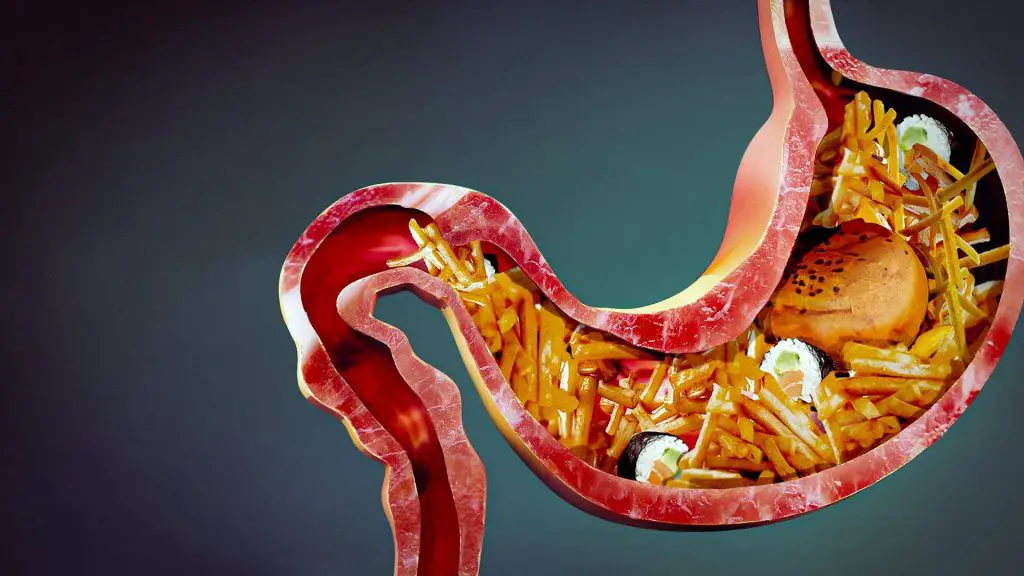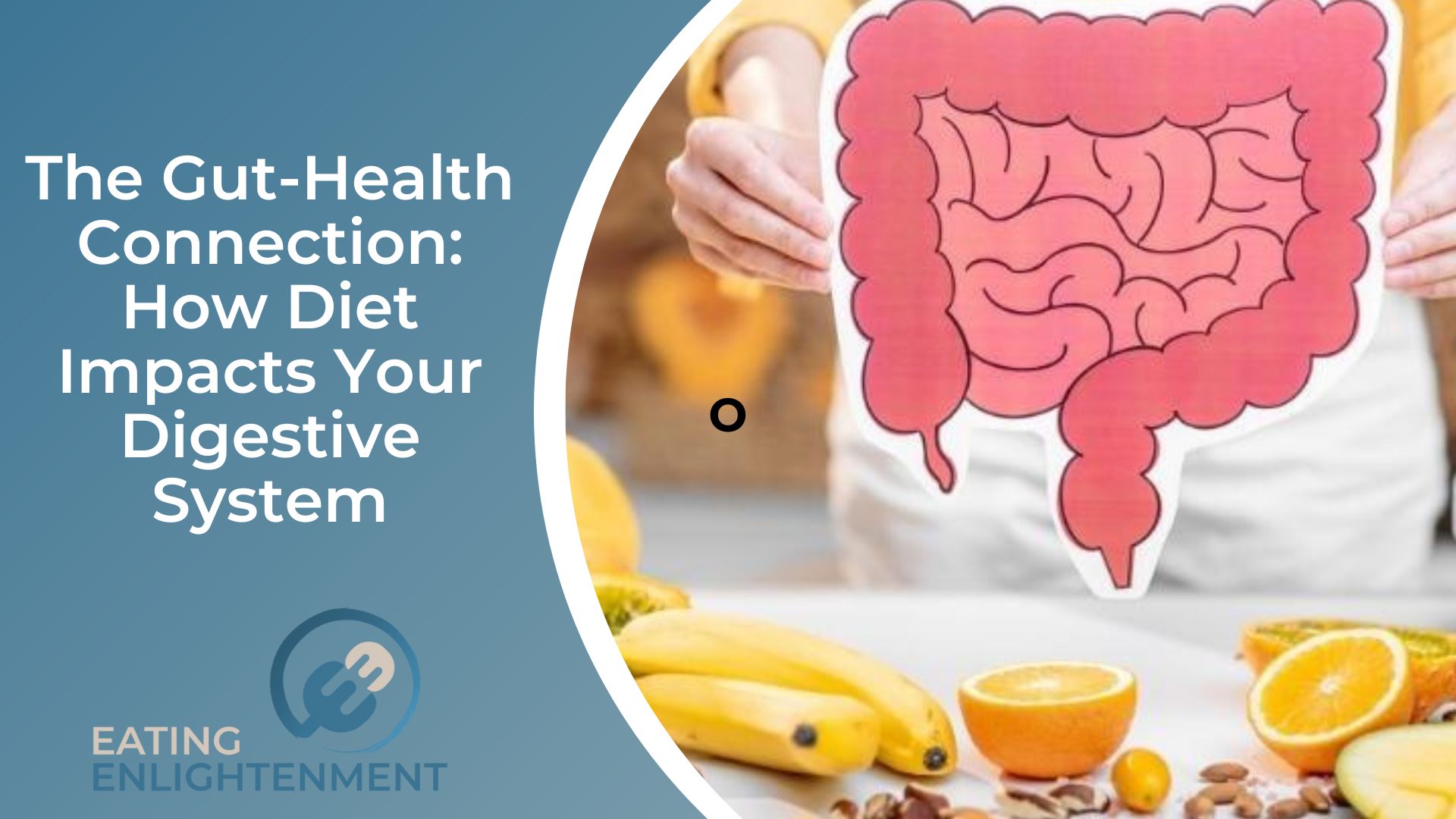Our digestive health is indicative of our overall well-being. It affects how we function, our energy levels, our mood and even our skin condition. So, it’s no secret that what we intake plays a huge role in our gut health and digestive system.
Recently, there’s been a growing interest in understanding the relationship between our diet and gut health. People are becoming more conscious about what they eat and how it affects their bodies so that they can perform optimally in their daily lives. So, whether trying out new diets like paleo or keto or making better food and beverage choices, the focus on gut health has become stronger than ever.
Understanding the impact of our diet on our gut microflora is vital for maintaining a stable and normally functioning gut. This article will explore the connections between diet and gut health and how to make better dietary choices to improve our digestive system. So, read on and learn how to take care of your gut!

The Impact of Gut Health on Overall Well-being
Notice how whenever we indulge in a meal heavy in processed foods, sugary treats or fatty fast food, we often end up with bloating, indigestion or other digestive issues? Or how we may experience an upset stomach or diarrhea when we’re stressed or anxious? Well, this is because of the gut-brain axis.
The gut-brain axis is the bidirectional communication system between our gastrointestinal tract (the gut) and central nervous system (the brain). This complex and intricate connection involves constantly exchanging signals, chemicals, and messages between these two major systems, influencing our feelings, moods and, in most cases, our digestive processes.
Our gut is home to a large portion of our body’s immune system and is vital in supporting immune responses and maintaining immune balance. The gut is populated by trillions of microorganisms called the gut microbiota, which interact with the immune system and help educate it about potential threats. These microbes also aid digestion and absorption of nutrients from our food. So, consuming foods and beverages high in processed ingredients, unhealthy fats and added sugars can disrupt our gut microbiota’s balance and lead to inflammation, digestive issues, and a weakened immune system.
Knowing the relationship between our gut and brain makes it clear how our diet can directly impact our gut health and how we function daily. This knowledge can guide us to make better choices on what we regularly consume.
Fostering a Healthy Gut through Dietary Choices
Now that we understand the connection between our gut health and welfare, let’s dive into what we can do to promote a healthy gut through our diet.
Have a Plant-Rich Diet
Switching to plant-based foods is one of the best ways to support your gut health. Fruits, vegetables, legumes, whole grains, and nuts are rich in fiber and contain essential nutrients that nourish and feed the beneficial bacteria in our gut. These foods help maintain a diverse and balanced gut microbiome crucial for optimal digestive function and overall health. These are excellent for your gut motility which refers to the movement and contraction of muscles in the gastrointestinal (GI) tract to move food through the digestive system smoothly.
Regularly including colorful fruits and vegetables in your meals can provide rich antioxidants and phytochemicals that can reduce inflammation and protect against harmful pathogens. As a result, you’ll experience improved digestion, better nutrient absorption, and a more robust immune system.
Incorporate Fermented Foods
Intaking fermented foods can introduce beneficial bacteria to your gut called probiotics. These probiotics are live microorganisms, often called “friendly” or “good” bacteria, that positively impact our gut microbiota by balancing it out. As a result, they modulate immune responses, prevent harmful microorganisms from thriving, manage lactose intolerance and support overall digestive health.
Some examples of fermented foods are yogurt, sauerkraut, kimchi, kefir, kombucha, tempeh and miso. Aside from being delicious, they also have numerous health benefits for the gut. And if you want a little bit of caffeine, you can have a decaf coffee or fermented herbal tea for a change.
Regular consumption of these fermented foods can help improve the diversity of your gut microbiota, leading to better digestion and absorption of nutrients.
Stay Hydrated
You always hear how drinking enough water is encouraged. Water is the solution to almost all of our health dilemmas, including our gut health.
Being mindful of your water intake and staying hydrated is one of the best habits you can do to support your digestive system. Drinking adequate water promotes better digestion as it helps break down nutrients for your body so your intestines can easily absorb them. It can also help you maintain regular bowel movements, which is vital for a healthy gut.
Another reason to drink water is to prevent constipation. Water helps keep your stools soft and prevents constipation, which can lead to uncomfortable and inefficient digestion. Your body will also be able to flush toxins and waste products more effectively as you drink more water, supporting the detoxification processes of the liver and kidneys.
Boost Your Fiber Intake
A gut-health-supportive diet includes fiber-rich foods. Fiber is essential for a healthy gut because it adds bulk to your stool and helps promote regular bowel movements. It fuels the beneficial bacteria in your stomach, allowing them to thrive and maintain a healthy balance.
Fiber, particularly soluble fiber, can help regulate gut motility by absorbing water and forming a gel-like substance. This can slow down the transit time of food through the digestive tract, allowing for more efficient nutrient absorption. Some types of dietary fiber are fermented by gut bacteria in the colon, producing short-chain fatty acids (SCFAs) as byproducts. SCFAs are critical in maintaining gut health, supporting the gut lining, and reducing inflammation.
Other benefits of consuming fiber-rich foods are blood sugar regulation, improved heart health, weight management, inflammation reduction and decreased risk of colorectal cancer.
Conclusion
It is clear that our gut health is interconnected with our diet and lifestyle choices. Our gut health state can affect how our daily lives unfold, from our energy levels to our mood and overall well-being. So, being aware of how our diet impacts our digestive system is crucial for maintaining a healthy gut.
By making small changes to our diet, such as having a plant-based diet, integrating more fermented and fiber-rich foods and increasing water intake, we can positively impact our digestive system and support optimal gut health.
It’s also worth mentioning that taking a bowel testing kit can also help in keeping your gut as healthy as possible.
So, next time you rich for a snack or prepare a meal, think about how it will benefit your gut health.



